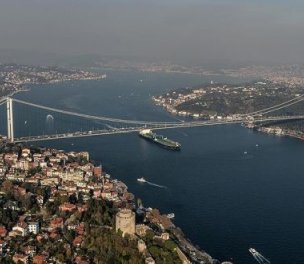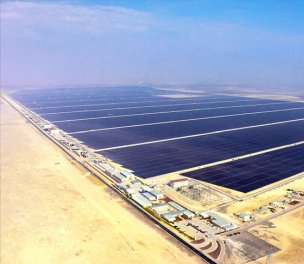Kirkuk pipeline to be closed as Turkey fined 1.4 billion dollars in arbitration case won by Iraq
.jpg)
Photo: LBNnews
Click to read the article in Turkish
The government of Iraq won an international arbitration case against Turkey's agreement on oil shipments with the Kurdistan Regional Government (KRG) on Saturday (March 25). The court ruled in favor of Iraq, ordering Turkey to pay 1.4 billion dollars in compensation instead of the requested 30 billion dollars.
The dispute began when Baghdad took the KRG to the international court, claiming that it was not authorized to make agreements on oil shipments and, therefore, could not ship oil via the Kerkuk-Ceyhan pipeline. The 970 km long pipeline is one of the largest in Iraq and runs from Kirkuk in Iraq to Ceyhan, one of Turkey's main transport hubs for oil and natural gas from the Middle East and Central Asia.
The production halt of the 450,000 barrels of oil per day might be a massive blow to the KRG's economy, with crude exports being a crucial lifeline of its economy.
The court decision covers the period between 2014 and 2018, while the case for the period between 2018 and 2023 is still ongoing. As a result of the decision, Turkey has also suspended oil shipments via the Kerkuk-Ceyhan pipeline. Similarly, the oil companies in the KRG announced that the Kurdistan Pipeline Company had shut down the pipeline at Ankara's request after arbitration.
Iraq's Oil Ministry welcomed the court's decision, emphasizing that Baghdad has exclusive authority over oil exports from Iraq.
On February 15, 2022, the Federal Supreme Court of Iraq had already ruled that the 2007 enacted Oil and Gas Law by the KRG is unconstitutional and that the obtained petroleum products should be handed over to the Baghdad administration.
Iraq is considered one of the most oil-dependent countries in the world. In the last decade, oil revenues have accounted for more than 99 percent of exports, 42 percent of the gross domestic product (GDP), and 85 percent of the government's total budget, according to the world bank. In addition, Iraq is one of Turkey's primary crude and petroleum import partners, only being surpassed by Russia.
KRG condemns the decision
KRG has condemned the decision, stating that it did not serve to resolve the issue. Local oil companies operating in the KRG region, such as Gulf Keystone Petroleum, DNO, and Genel Energy, have announced a reduction in production or storage until the situation is resolved. The shares of all companies in the region have experienced losses of more than 10 percent.
Gulf Keystone Petroleum (GKP.L), which produces 55,000 barrels of oil per day from the Shaikan field in northern Iraq, announced on Monday (27 March) that it has the storage capacity to continue production by reducing output in the coming days and then will likely suspend production.
DNO and Genel Energy, two companies operating in the region, said they could store a few days' worths of production in their tanks. Both firms have stakes in local fields that produced 107,000 barrels of oil per day last year. Genel Energy also has stakes in nearby oil fields, which produced 4,500 and 4,710 barrels of oil per day, respectively, last year.
Production at the Hurmala oil field in Kirkuk, operated by Kar, which produces 135,000 barrels per day, is unaffected by the new situation.
ShaMaran Petroleum (SNM.V) stated that it will continue to monitor the situation closely by maintaining close contact with other oil producers and relevant government officials in the KRG. (AEK/WM/VK)






